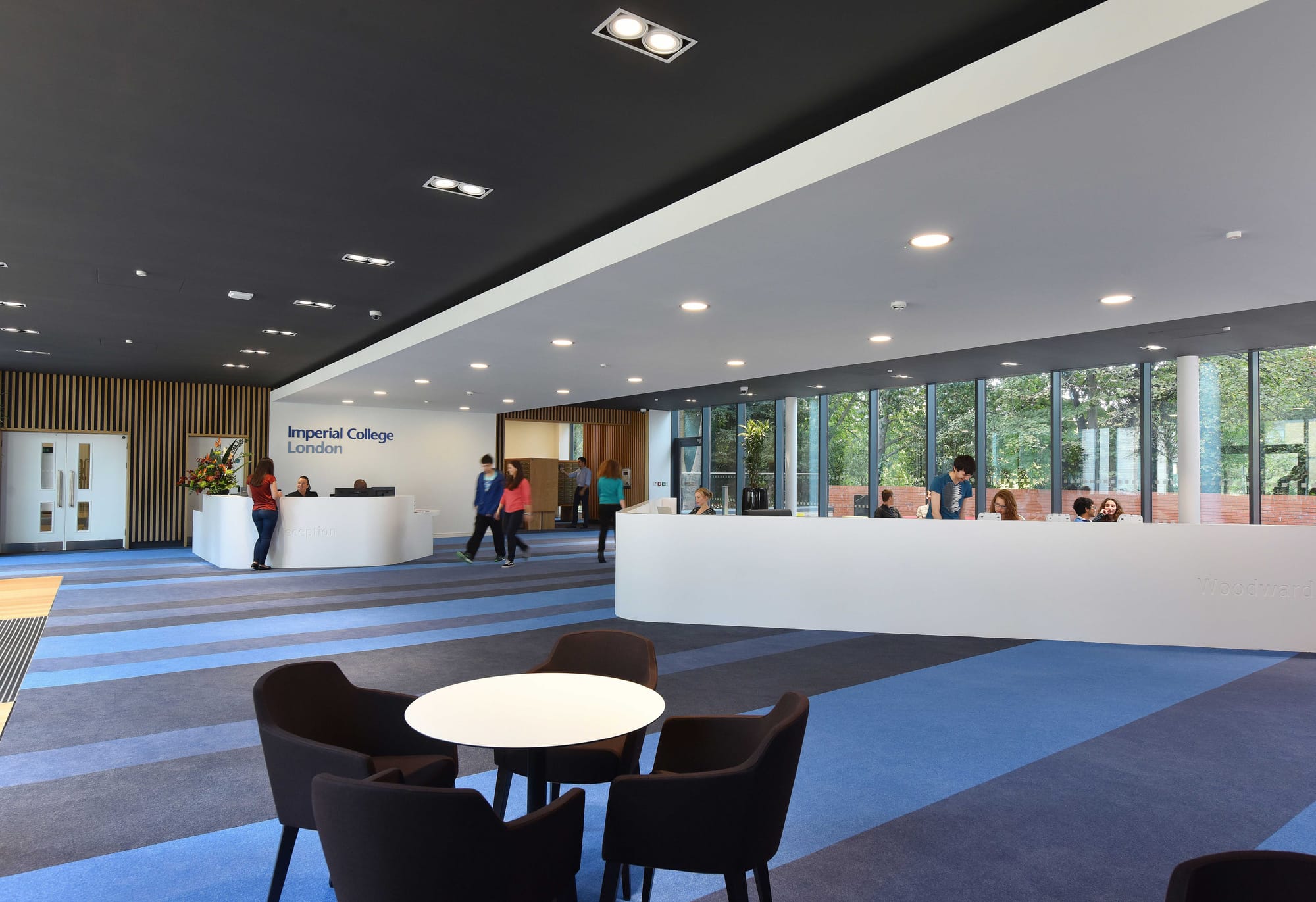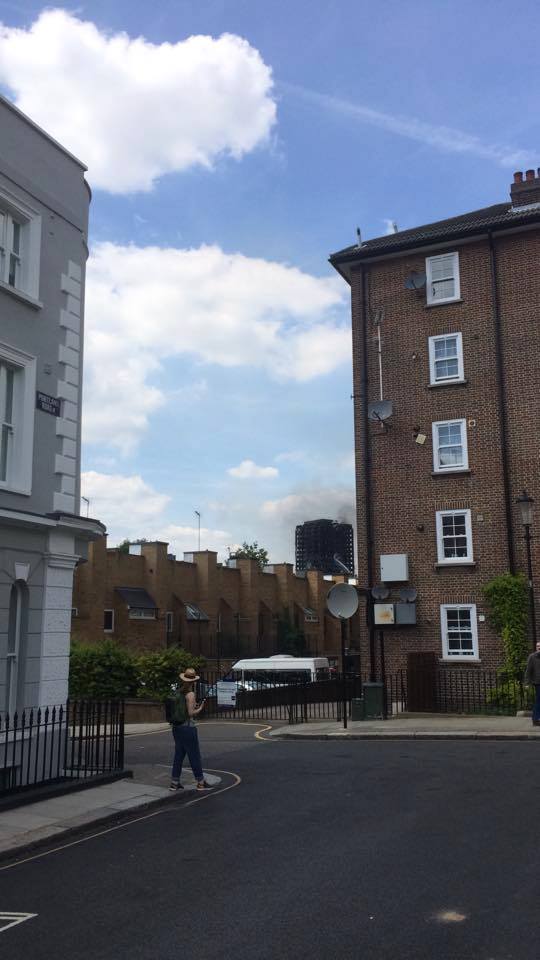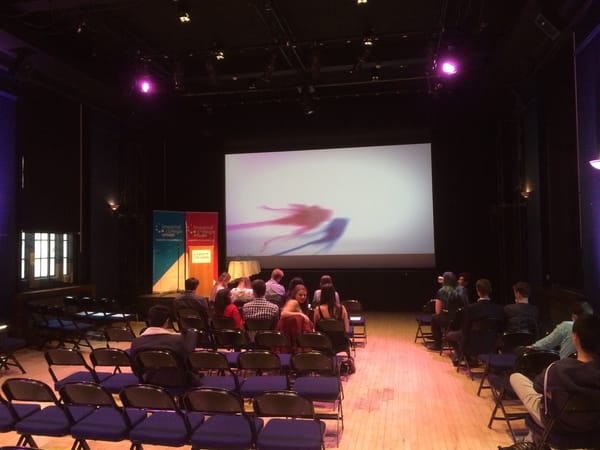Imperial student halls fail fire safety tests on cladding
Woodward Buildings' cladding fails the safety tests ordered following the Grenfell Tower fire

The cladding system used in Woodward Buildings, one of Imperial College London’s newly-built student halls, has failed governmental fire safety testing. Sources from inside the hall also report multiple failures to adhere to fire safety policy, Felix can reveal.
The results of the tests were revealed to residents last week, in an email assuring them that North Acton’s Woodward Buildings, which can accommodate 690 students, were “safe for occupancy” despite having sections of cladding that failed the government-ordered tests.
The governmental tests are being carried out on aluminium composite material (ACM) cladding with a variety of different filler and insulation materials. The measures were recommended by a fire safety panel following the Grenfell Tower fire earlier this summer, in which at least 80 people died. The ACM cladding that was used on the building’s exterior is believed to have contributed to the blaze’s rapid spread.
Furthermore, anonymous sources have revealed to Felix that hall staff have broken fire safety regulations multiple times in recent weeks, wedging open multiple fire safety doors across a single floor.
Local Government Association advice and Imperial’s own fire safety policies both emphasise the importance of keeping fire doors onto communal corridors shut. One student who spoke to Felix said that “while there are some staff who are excellent, there is a worrying environment of incompetence that’s evident among those at Woodward, particularly in those who are new and have been hired for just the summer.”
Imperial is seeking professional advice regarding the remedial work required on the areas of cladding that failed tests. An inspection by fire officers found that the building was safe for habitation; residents of the buildings were informed of the results, and given details of Woodward’s fire safety strategy. One student criticised the approach the College had taken: “the letter we received was insulting to our intelligence, with nine paragraphs of shallow reassurance, and only one sentence in which they said the actual reason for writing the letter.”
ACM cladding, which is used in many new buildings, comprises of two sheets of aluminium sandwiched together with a lightweight core. The tests, which are being undertaken by the Building Research Establishment, are testing six forms of ACM cladding against building regulation standards, which state that all external walls must be adequately fire-resistant
Two sets of ACM cladding have been tested thus far; both have been found to be inadequately fire-resistant. Four more tests are scheduled to be performed this month.
ACM cladding has been linked to a number of previous fires, including the Lakanal House fire in Camberwell in 2009, the Lacrosse building fire in Melbourne in 2014, and the Address Downtown fire in Dubai in 2015.
It has most recently been indicted in the tragic Grenfell Tower fire, which began in the early hours of the morning of the 14th June, and rapidly spread through the 24-storey structure. Authorities have confirmed that at least 80 people died during the fire, but a final death toll is not expected until next year.
Nearly 200 buildings in the UK have cladding that has failed the fire safety tests ordered thus far. Owners of the buildings affected are advised to seek professional advice regarding removing the cladding. Interim fire safety measures have been recommended by the government, including ensuring fire alarms are working and doors are self-closing.
The chairman of the Local Government Association’s Safer and Stronger Communities board, Councillor Simon Blackburn, has said that "the tragedy at Grenfell Tower has clearly exposed a systemic failure of the current system of building regulation."

Woodward Buildings are among Imperial’s newest student halls, and were completed in the summer of 2015. The building is 19-stories tall, and located next to North Acton station.
A College spokesperson issued the following statement: “Following the tragic fire at Grenfell Tower the College leadership and fire safety experts have been thoroughly reviewing our fire strategies and can confirm that all of our buildings are safe for residents.
In response to the Grenfell Tower fire, the government set up an Expert Panel to advise on fire safety in tall buildings and through its testing programme we have learned that one of our Halls, Woodward Buildings, has some areas of cladding made from an Aluminium Composite Material (ACM) which has not passed recent government tests.
The safety of our guests and community is always our priority. The following fire safety strategy is in place at Woodward to protect occupants in the event of fire:
- Sprinklers in each bedroom, hallway and communal kitchen, which are automatically activated when fire is detected.
- Automatic fire detection in each bedroom and throughout the building as a whole.
- Fire alarms that have backup power supplies and are maintained by specialist engineers.
- Manual alarm buttons in every lobby of the accommodation floors – these can be triggered by anyone who may discover an outbreak of fire before it is automatically detected. They can also be used by staff or the fire service to escalate evacuation if required.
- Staff on-site 24/7 who are trained in how to respond in the event of fire alarm activation.
- Fire drills carried out to check that our fire evacuation processes are effective.
- Regular checks and audits of the building carried out, working closely with the London Fire Brigade. We have followed government guidance and are taking professional advice on any remedial work required to those parts of our building that are cladded. The College will be taking all necessary steps and will keep our community and neighbours updated on progress.
Anyone with questions or concerns is encouraged to contact the Duty Village Manager through the College’s 24 hour Concierge team on 020 7594 9971 or 49971 from a College landline.”
The College were able to confirm that no other student halls had cladding that has failed the tests performed thus far.
Woodward Buildings, which were designed by architecture firm careyjones chapmantolcher, were nominated for the 2015 ‘Carbuncle Cup’, awarded by Building Digest to the “ugliest building in the United Kingdom completed in the last 12 months”. It lost out to 20 Fenchurch Street – the ‘Walkie-Talkie’ – whose curved facade focussed the sun’s rays, causing car parts to melt.









